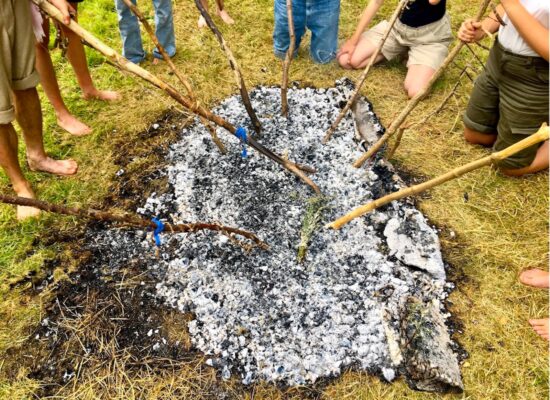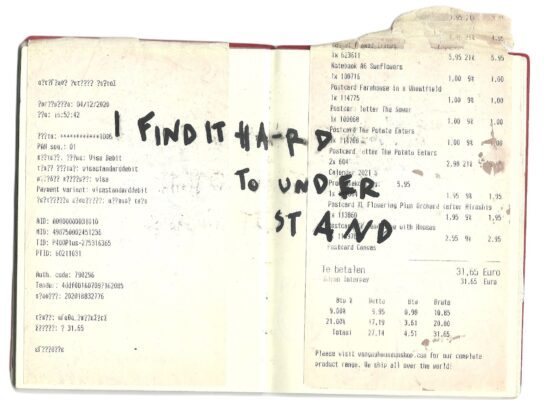Based in Rotterdam, The Netherlands
Website https://silviabianchini.xyz
Research project Body Dough Synergy
Location Piet Zwart Institute, Rotterdam, The Netherlands
Can you describe your research project?
My research project involves an exploration of my body and the dough used in bread-making. The project seeks to convey my connection to this ancient practice, which I inherited from my grandmother, who was born and raised in a small village in northern Italy where bread is a primary source of sustenance for all its inhabitants. Living outside Italy and unable to see my family often, baking bread has become a way for me to reconnect with my roots as a woman descended from this village.
In my artistic research, bread-making transforms from an act of survival into a ritual—both performative and sonic—that I explore deeply. My research includes experiments with contact microphones and stethoscopes, which I use to compose soundscapes as my body interacts with the bread dough during intimate and vulnerable moments. Additionally, my work indirectly addresses themes related to food production and consumption, reflecting on how human and non-human communities come together to nurture, share, and sustain each other.

Why have you chosen this topic?
I chose this topic because my research project has personal roots. It begins with my fascination with my family’s origins and the deep emotional connection to my maternal grandmother, who was born and spent the first part of her life in Vico, a small mountain village in the Alps of northern Italy. My artistic research starts with the family’s photographic archives and the stories, legends, and life experiences of my grandmother. The research focuses on the women of Vico and their bread-making practices, which were exclusively carried out by women. The aim of the research is to understand this practice, analysing its social and identity value from a feminist perspective.

What research methods do you use?
I don’t believe I have a clearly defined research method; my work is often driven by personal motivations, such as the desire to explore myself and the connections that bind me to the living beings around me. My research, along with my artistic practice, is intuitive. I immerse myself in reading, but I also engage deeply in hands-on work—I learn through the process of making.

In what way did your research affect your artistic practice?
My research, which includes reading, exploring personal and public archives, conducting interviews, and making site-specific visits, feels more ethnographic than artistic. I am deeply interested in connecting with places and both human and non-human entities, giving them a voice to tell their stories and how these narratives intertwine with my own history. For me, research is crucial because it provides the stories, conversations, and social connections that I then integrate into my artistic practice.

What are you hoping your research will result in, both personally and publicly?
I believe this research has given me a fresh perspective on my family and the identity of this ancestral village. Personally, by sharing even a small part of Vico’s story and the lives of the women who inhabited it, I feel a deeper emotional connection to my roots. I’m also convinced that this personal narrative resonates with many other stories of women worldwide. I hope my research prompts a collective reflection on the importance of preserving community traditions in a time when people are increasingly isolated.




